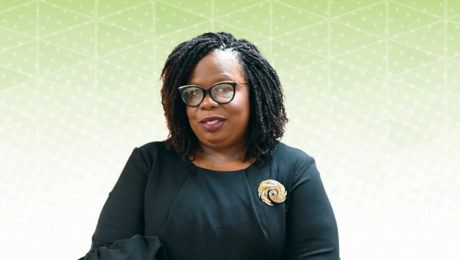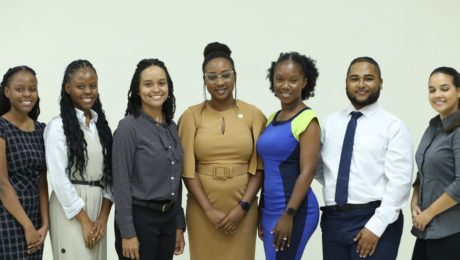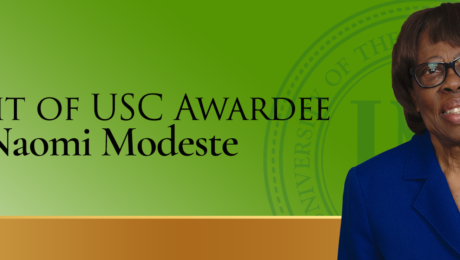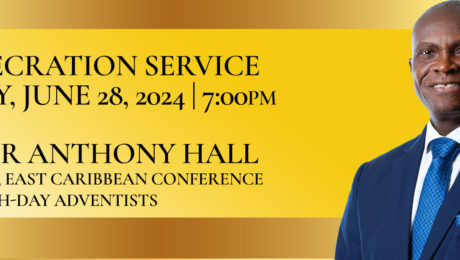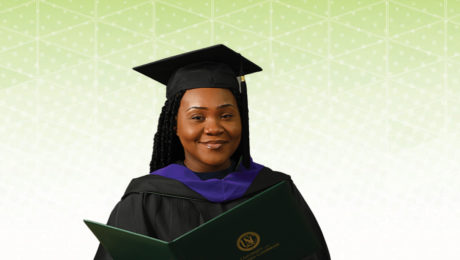Staff Spotlight: Ayanna Antoine – Leading USC’s 91st Graduation with Excellence
By Simone Augustus, Corporate Communications Officer
As the University of the Southern Caribbean (USC) counts down to its 91st Graduation, we proudly shine the Staff Spotlight on Ms. Ayanna Antoine, a dedicated and inspirational figure who has served the university for over 21 years. Currently holding the crucial role of University Registrar, Ms. Antoine’s contributions have significantly shaped the USC community, ensuring a seamless and enriched academic journey for students. Passionate about providing a superior client experience, Ms. Antoine operates under the conviction that relationship management is key to staff growth and development, student learning, and a healthy organizational culture.
A Journey of Dedication and Excellence
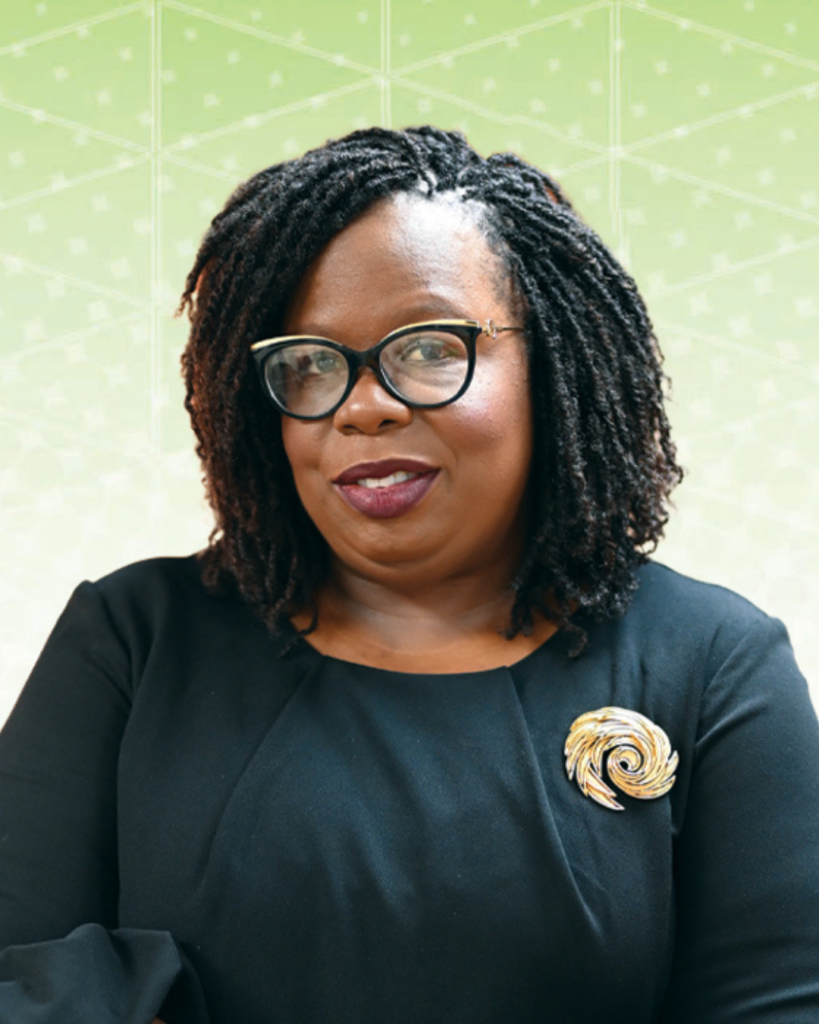
Ms. Antoine’s illustrious career at USC began in 2003 when Mrs. Leola Haynes, the former Registrar, recommended her for the position of Records Officer. Since then, Ms. Antoine has held various roles that have allowed her to develop a comprehensive understanding of the university’s operations. She was subsequently appointed Executive Director, where, with the support of former Provost Dr. Wanda Chesney, she initiated the Student Advisement Center. This center, dedicated to student welfare and academic success, is a testament to her commitment to supporting students throughout their educational journey.
Her tenure as Director of Food Services further honed her organizational and management skills.
Ms. Antoine’s robust educational background reflects her commitment to continuous learning and professional development. She holds a Bachelor of Science in Family and Consumer Sciences from Andrews University, a Bachelor of Science in Nutrition and Dietetics from the University of the West Indies (UWI), an MBA from Andrews University, and a Master of Education in Educational Leadership from UWI. Additionally, she has received specialized training in Events Management and Quality Management, which she applies adeptly in her current role.
Transformational Leadership as University Registrar
As University Registrar, Ms. Antoine oversees the comprehensive operations of the Office of the Registrar, including registration, examination, and graduation processes. Her role ensures the integrity, accuracy, and security of all academic records and compliance with academic regulations and institutional policies.
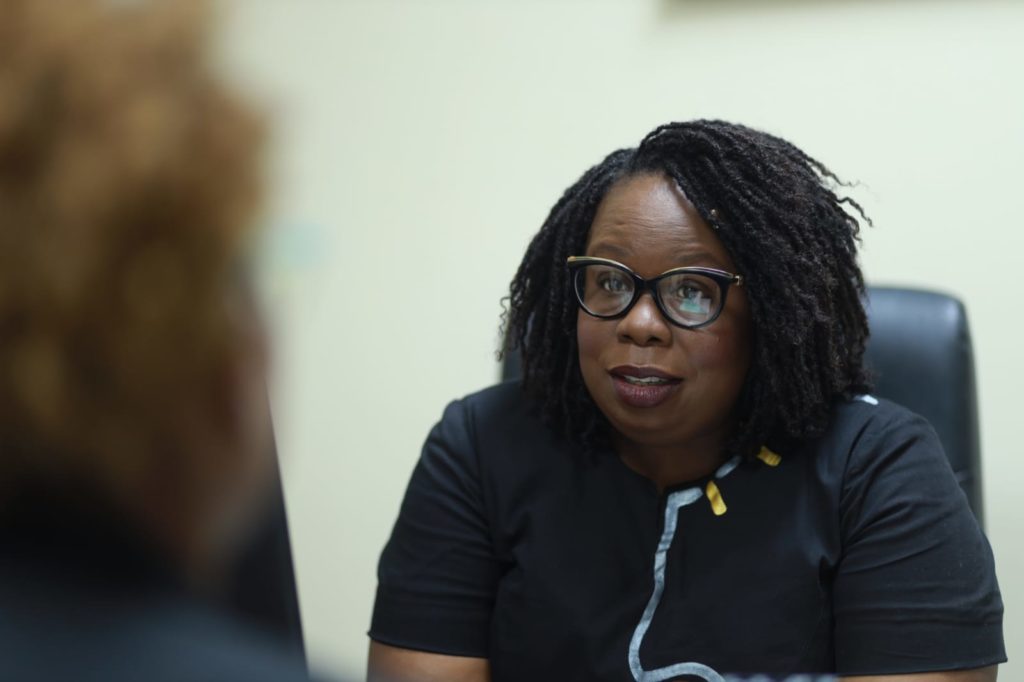

Ms. Antoine has been instrumental in spearheading projects that have revolutionized the university’s administrative processes. Her focus on digitization has enhanced the accessibility of information for both students and staff, implementing online forms, QR codes, and shared documents to streamline processes and improve efficiency. These initiatives have not only modernized the university’s operations but also significantly improved communication and services within the USC community.
Enhancing the Graduation Experience
Since 2016, Ms. Antoine has played a pivotal role in the graduation process alongside the Provost, ensuring each ceremony is a seamless and celebratory event for students and their families. From coordinating the submission of prospective graduates’ Notification of Intention to Graduate (NITG) forms to the final touches on their regalia on the morning of their Commencement Ceremonies, Ms. Antoine plays a crucial role in the planning and execution of USC’s graduation ceremonies.
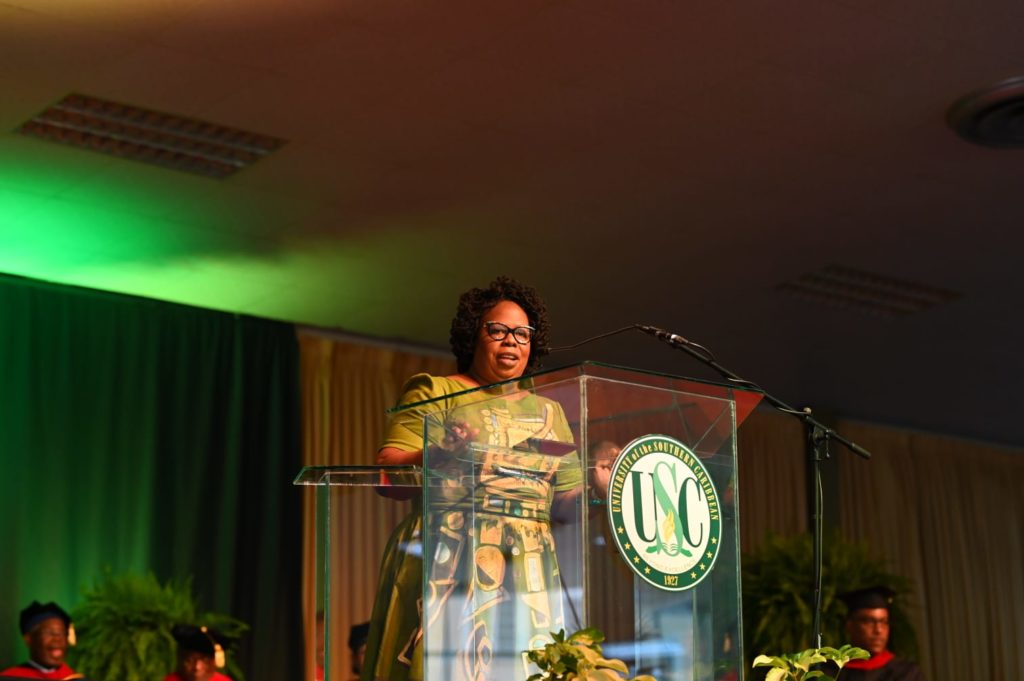
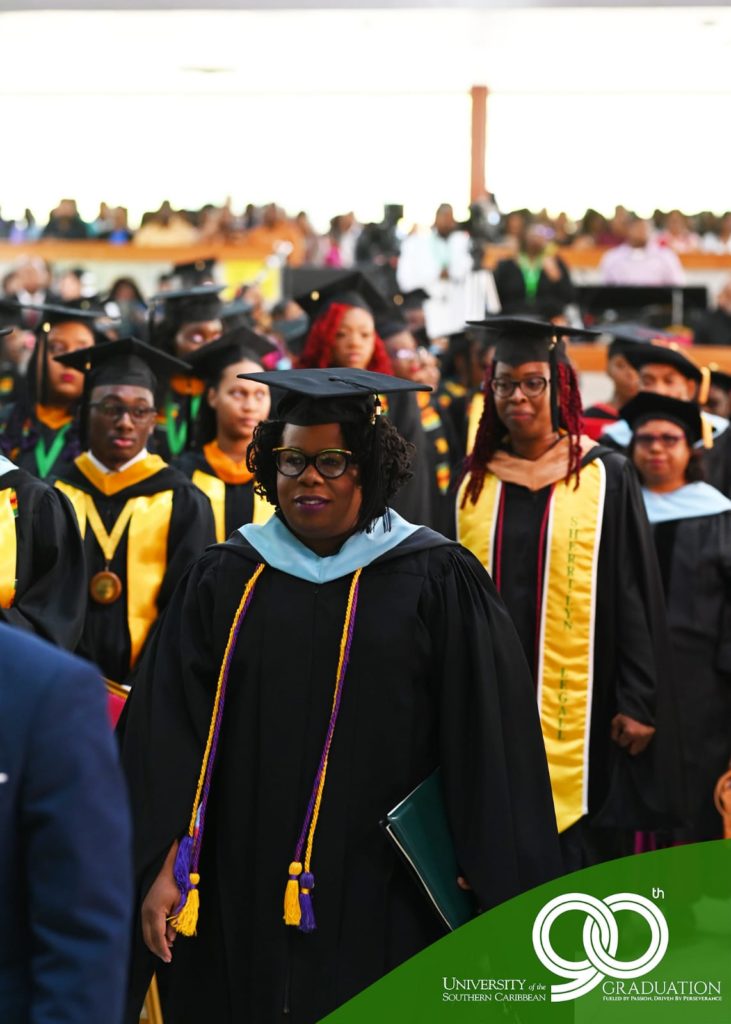
This year, as we prepare to celebrate the Class of 2024 at our 91st Graduation from June 28-30, 2024, Ms. Antoine’s role is more pivotal than ever. Her meticulous planning and innovative approach have consistently elevated the graduation experience, creating an authentic and memorable celebration for each graduating class. Her efforts ensure that the culmination of students’ academic journeys is celebrated with the grandeur and respect it deserves.
Building Community and School Spirit
Beyond her administrative achievements, Ms. Antoine is passionate about fostering school spirit and community engagement. Her active involvement as a sponsor for the Trinidad and Tobago Club, participation in International Student Week, and mentorship in the Portrait of Excellence program underscore her dedication to creating a vibrant and inclusive campus environment.

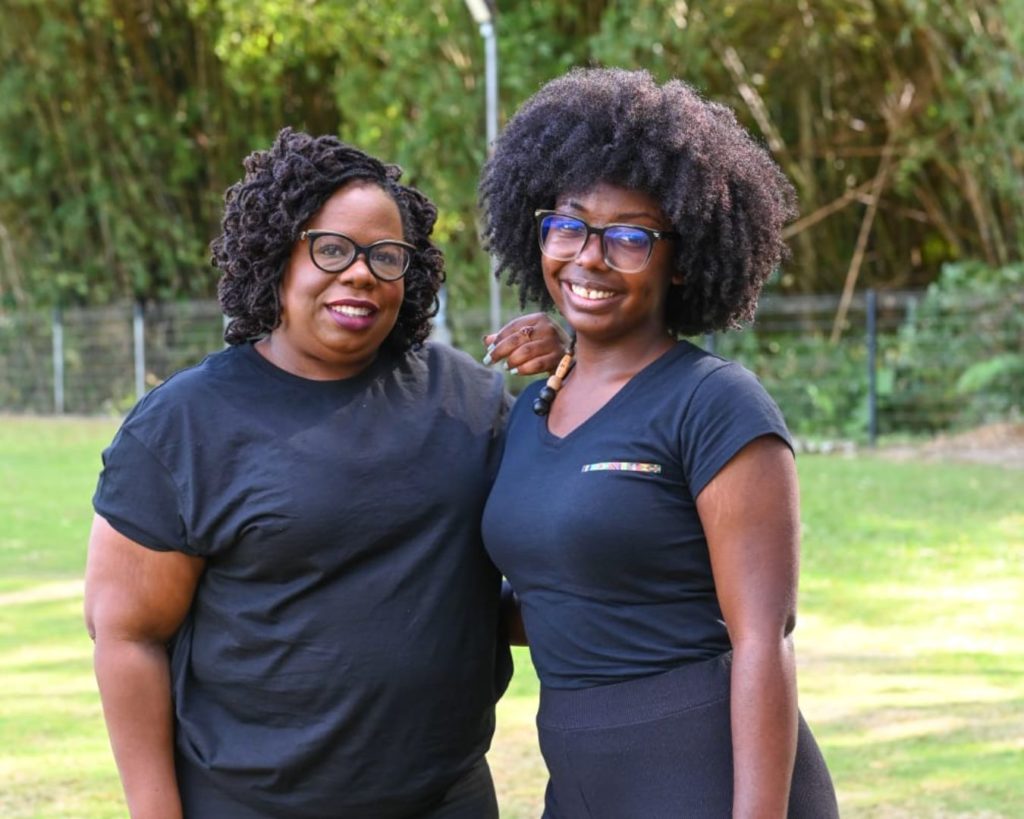
Additionally, she plays a key role in staff motivation activities, constantly working to boost morale and promote a sense of camaraderie. In recognition of her outstanding dedication, Ms. Antoine was awarded for her exceptional contribution to Colloquium activities in 2018.
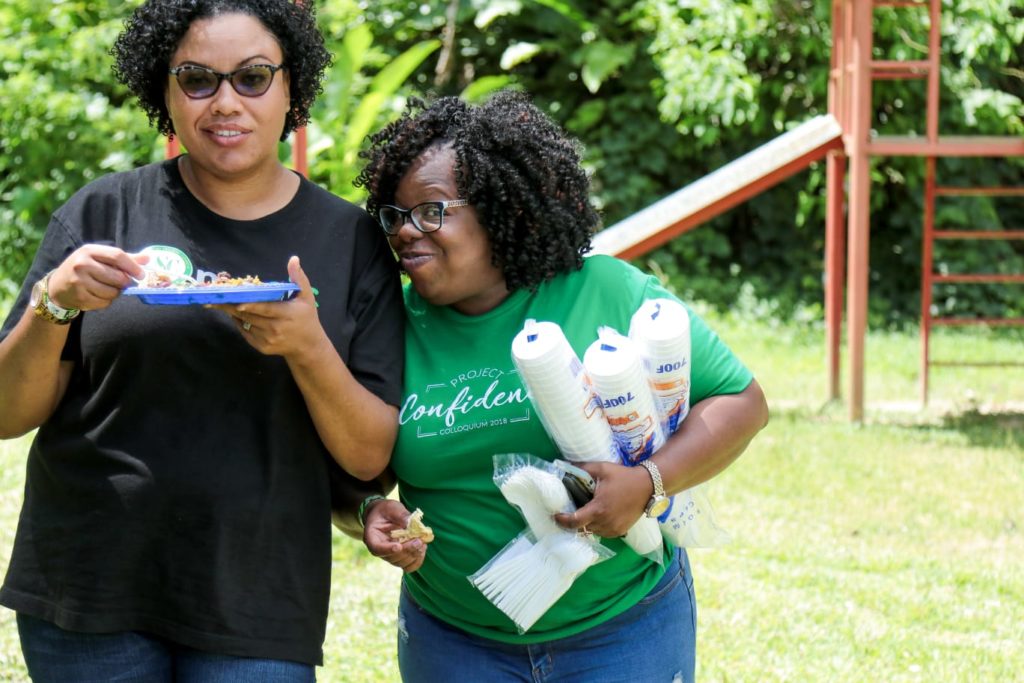

A Beloved Figure and Guiding Principle
Ms. Antoine’s guiding principle is simple yet profound: she allows God to guide her, bringing creativity and enthusiasm to everything she does. Her role allows her to engage with students from their initial orientation and registration through to the culmination of their degrees. Her unwavering support and dedication have made her a beloved figure among both students and staff, with her name synonymous with excellence and commitment at USC.
As we celebrate our 91st Graduation, we honor Ms. Ayanna Antoine for her remarkable contributions and steadfast dedication to the University of the Southern Caribbean. Her leadership and passion continue to inspire the USC community, ensuring that every student’s academic journey is enriched and celebrated.
- Published in News, President's Newsletter, Staff
Faculty Spotlight: Mrs. Sasha Samaroo-Burgos – Nurturing Excellence in Nursing Education
By Simone Augustus, Corporate Communications Officer
The University of the Southern Caribbean (USC) is proud to shine the Faculty Spotlight on Mrs. Sasha Samaroo-Burgos in the June 2024 issue of the President’s Newsletter. For the past decade, Mrs. Samaroo-Burgos has served as a dedicated lecturer in USC’s Department of Nursing Education, leaving an indelible mark on both her students and colleagues as she inspires and innovates. She brings a wealth of experience and passion to the USC community through her teaching methods, dedicated mentorship, and unwavering commitment to academic excellence.

As a proud USC alumna, Mrs. Samaroo-Burgos’ journey began within these very halls where she completed her Bachelor of Science in Nursing. She further honed her expertise with a Master’s in Nursing Education from the University of the West Indies and is now pursuing a Doctorate in Nursing Practice with a focus on Executive Leadership. Her academic journey, deeply rooted in USC’s values, is reflected in her passionate approach to teaching and mentorship.
Innovative Teaching Methods and Mentorship
In her role as an educator, Mrs. Samaroo-Burgos employs a variety of dynamic teaching strategies to engage her students actively. From simulation activities and problem-based learning to interactive games like Jeopardy, Family Feud, crosswords, and Blooket, her innovative approaches make learning both enjoyable and effective. These methods not only foster critical thinking but also help students grasp complex concepts more easily. Through constructive feedback, Mrs. Samaroo-Burgos motivates her students to reach their highest potential, creating an enriching classroom environment.
As a member of USC’s first cohort of nursing students, Mrs. Samaroo-Burgos deeply understands the challenges her students face. Her personal experiences allow her to empathize with their concerns, providing professional and spiritual guidance to help them achieve a balanced, healthy life. She passionately believes in the World Health Organization’s definition of health, emphasizing the importance of physical, mental, and social well-being. Her mentorship goes beyond academics, fostering a supportive environment that nurtures the holistic development of her students.
Research and Publications: Advancing Nursing Practice
Mrs. Samaroo-Burgos is not only an educator but also an avid researcher. She authored a significant paper on “Palliative Care to Paralyzed Patients: Lived Experiences of Registered Nurses at the Intensive Care Unit of a Major Hospital.” Her current projects include developing clinical practice guidelines to enhance nursing quality and creating interactive games to improve classroom learning experiences. She is also gearing up for research on how classroom simulation influences students’ performance in nursing licensure examinations, reflecting her dedication to advancing nursing education.
Building a Resilient Community through Collaborations and Engagement
In addition to her teaching and research roles, Mrs. Samaroo-Burgos serves as the vice president of the faculty senate, participating in vital discussions and advocacy for faculty development. Her involvement extends to attending various workshops and conferences, such as those on simulation, artificial intelligence in academia, and nurse faculty development. She recently joined the international group Teachers Transforming Nursing Education, which offers valuable resources and strategies for academic growth.
Mrs. Samaroo-Burgos fosters collaboration through her active participation in annual research days at USC and networking with private and public institutions to promote the university. Her commitment to enhancing the learning experience at USC is evident in her belief that students are the key stakeholders. She emphasizes creating an optimal academic journey, with God at the center, ensuring that success is achievable for all.
Contributing to USC’s Legacy
Guided by the exemplary leadership of Dr. Woolford, director of the nursing department, Mrs. Samaroo-Burgos envisions a resilient, collaborative nursing department that upholds USC’s ethos. She is dedicated to strengthening alliances with other schools within the university, enriching students’ learning experiences as they embark on their spiritual and academic journeys. With a pledge to serve as long as it is God’s will, Mrs. Samaroo-Burgos exemplifies the spirit of dedication and faith that defines the USC community.
USC is honored to have Mrs. Sasha Samaroo-Burgos as a beacon of excellence in nursing education, inspiring future generations of nurses to achieve greatness in their professional and personal lives.
- Published in Faculty, News, President's Newsletter
MSOT Pinning Ceremony: “Empowering Journeys: Transforming Lives”
By Ms. Kimarah Reefe, Director (Ag.), Master of Science in Occupational Therapy
On Sunday June 23, 2024, the Master of Science in Occupational Therapy (MSOT) program held its Pinning Ceremony, under the theme “Empowering Journeys: Transforming Lives.” The ceremony, held at the University of Southern Caribbean, celebrated the achievements and hard work of the MSOT graduates, faculty, and clinical instructors. The event commenced with an opening prayer by Dr. Lena Caesar, Dean of Graduate Studies, followed by a warm welcome from USC President Dr. Colwick Wilson and administrative greetings from Provost Dr. Len Archer. Ms. Kimarah Reefe, Acting Director of the MSOT Program, delivered an inspiring address, emphasizing the students’ journey and their future contributions to the field of occupational therapy.
A musical selection by Ms. Renee Lawrence set a celebratory tone, followed by the keynote address from Dr. Kiara Matthews, Coordinator of the Speech and Language Programme at the University of the West Indies. Dr. Matthews encouraged graduates to be “Opportunity Torch” (OT) bearers, symbolizing their role in bringing light and change to their communities. Special recognition was given to the pioneer class of the MSOT program, which graduated five years ago and has since made significant contributions to the field of occupational therapy. Their success served as an inspiration for current and future graduates. Special thank you to each member of the pioneer class who sponsored the CARES awards. Ms. Shakila John, Academic Fieldwork Coordinator, presented the CARES and Student Choice Awards. The CARES awards, reflecting the program’s core values, recognized exceptional student achievements in various categories:
- Compassionate Practitioner Award: Awarded to Ms. Kristen Mollineau for her exemplary performance in Service Learning courses, sponsored by OT Miranda’s.
- Occupational Justice and Advocacy Award: Given to Ms. Aneka Thomas for her work in Professional Foundations of Occupational Therapy and Community-based OT, sponsored by Beginning and Beyond Rehabilitation.
- Research and Evidence-Based Practice Award: Presented to Ms. Kristen Mollineau and Ms. Tamika Thomas for their research on healthcare access for adults with intellectual and developmental disabilities, sponsored by Full Bloom Therapy and Wellness and Taylor-Made Therapy Services.
- Experiential Learning Award: Awarded to Ms. Aneka Thomas for her outstanding performance in Fieldwork Level II courses, sponsored by OT Haven.
- Scholarship of Learning and Teaching Award: Presented to Ms. Aneka Thomas for her consistent academic excellence and leadership, sponsored by Eureka Kids.
The Student Choice Awards, voted by peers, highlighted leadership and resilience within the graduating class:
- Outstanding Student Leader Award: Mikkel Wilson, recognized for his leadership qualities.
- Resilience Award: Kristen Mollineau, honored for overcoming significant obstacles.
- Inspiring Student Award: Tamika Thomas, acknowledged for her behind-the-scenes efforts.
- Innovative Student Award: Aneka Thomas, celebrated for her creativity and community support.
- Community Outreach Award: The entire MSOT Class of 2024, recognized for exceptional volunteer efforts.
- USCIAN Spirit Award: Lynthea Reefe, noted for her school spirit and campus involvement.
- MSOT Advocacy Award: Chelsea Walcott, for promoting the MSOT program.
- Servant Leader Award: Aneka Thomas, for her altruistic and supportive nature.
The ceremony also honored clinical instructors who played a pivotal role in the students’ education, with tokens of appreciation presented by students Aneka Thomas and Lynthea Reefe. Special acknowledgments were given to those who couldn’t attend, ensuring all contributors were celebrated. In her closing remarks, Class Representative Kristen Mollineau reflected on the journey and expressed gratitude to the faculty and staff. The event concluded with a prayer by Onesi La Fleur, leaving graduates inspired and ready for the next chapter in their professional lives.
Special thanks to Ms. Shakila John, Dr. Particia Coker-Bolt, Dr. Tracy Hislop, Dr. Diadrey-Ann Sealy, and the entire MSOT faculty and staff for organizing this memorable event. Appreciation also goes to the committees, volunteers, and contributors who made the ceremony possible. This Pinning Ceremony not only recognized the accomplishments of the MSOT graduates but also celebrated the collaborative efforts of the entire USC community, ensuring a bright future for these new occupational therapists. A heartfelt congratulations to the graduates for their remarkable achievements and dedication to transforming lives through occupational therapy.
- Published in News, President's Newsletter
New Generation of Directors Ushers in Era of Musical Innovation at USC
By Boyd Gibson, Chair, Department of Music & Simone Augustus, Corporate Communications Officer
As the University of the Southern Caribbean (USC) prepares to celebrate its 91st Graduation Weekend from June 28-30, 2024, the spotlight shines brightly on its vibrant Music Department. Nestled in Trinidad, this department stands as a beacon of musical excellence not only for the island but across the Caribbean region. What sets USC apart is not just its rich history but also its commitment to nurturing new talent, evident in the dynamic leadership of its recent graduates and advanced students.
Under the stewardship of Mr. Boyd Gibson, who assumed the role of chair of the Music Department following the departure of Mr. Kerron Hislop, a new era of growth and innovation has dawned. Mr. Gibson now serves as Artistic Director, overseeing a cadre of talented directors who helm USC’s esteemed music ensembles: Ms. Diahann White at the University Women’s Chorus, Mr. Niall Edwards with the University Concert Band, Ms. Siobhan Lawrence directing the University Chorus, and Mr. Anton Charles leading the University Orchestra. Each of these directors brings a unique blend of experience and passion to their roles, propelling their ensembles to new heights of musical achievement.
Ms. Diahann White, Director, University Women’s Chorus
Ms. Diahann White serves as the Director of the University Women’s Chorus and holds a BA in Music with honors in Music Education, specializing as a Dramatic Mezzo. Currently a student in the Margaret Richards Vocal Studio, she also tutors at the USC Music Academy. At the University of the Southern Caribbean, Diahann directs the University Women’s Chorus, which recently achieved second place in the Open Choirs category at the 2024 Trinidad and Tobago Music Festival. Notably, she acted as guest conductor for the Holy Name Convent Secondary School Choir, leading them to victory in the Arts Support Alliance Trophy for Jr. Contemporary Religious Choir at the same festival.
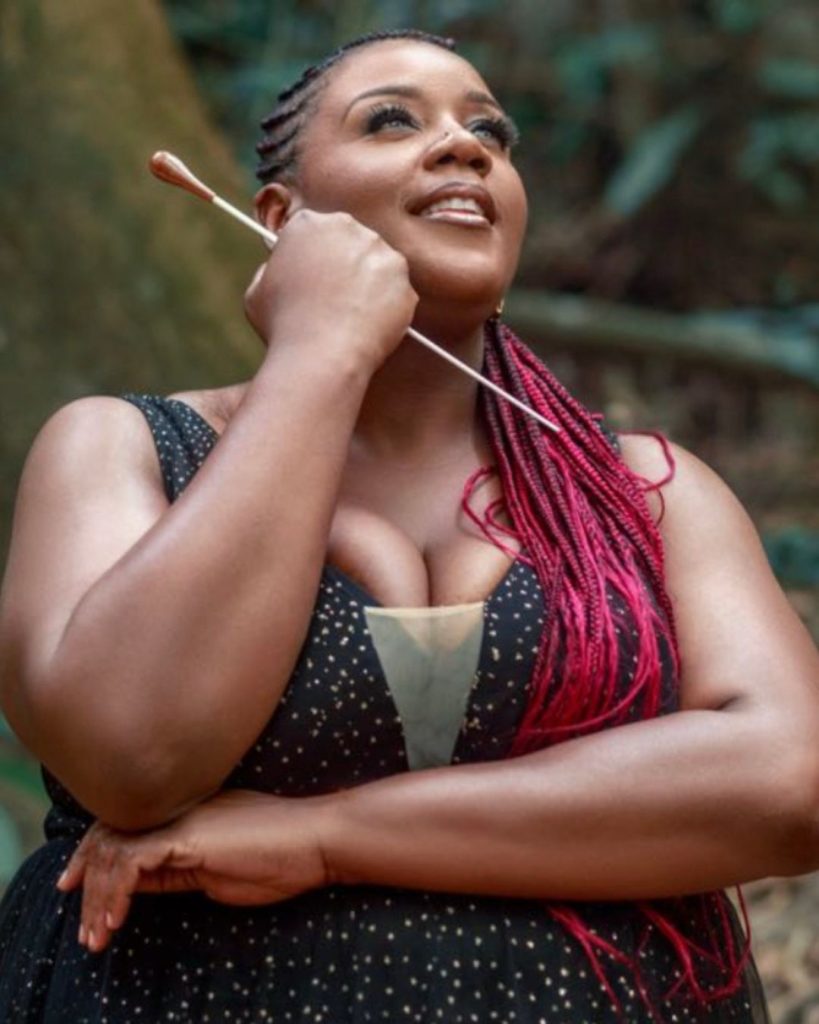
Diahann’s musical journey includes significant professional development, such as attending the intensive workshop “The Choral Warm Up” at Westminster Choir College under the guidance of James Jordan in 2022, a Master Class with Dr. Jason Max Ferdinand at North Carolina ACDA 2022, and auditing a conducting Master class with Dr. Richard Tang Yuk in 2022. She has also benefited from private conducting sessions with choral clinician Dr. Ariel Quintana of La Sierra University, and a Conducting Master class with Dr. Dean Anderson in 2018, also at La Sierra University.
The University Women’s Chorus at the University of the Southern Caribbean is dedicated to harmonizing hearts and spirits through empowering music, guided by their faith. Celebrating the strength, diversity, and unity of women as reflections of God’s creation, their performances resonate with soul-stirring melodies that uplift both audiences and members alike, fostering connections rooted in the love and compassion exemplified by Jesus Christ.
Here are a few reflections from her singers on their experience working with Ms. Diahann White:
‘’My experience as a past member of the Women’s chorus has been one of sisterhood. The way we all came together, looking out for one another is something I appreciated in my short stay with the group. Our leader is an amazing motivator. She believed in us despite us thinking we couldn’t get our parts down. We had many holiday practices which definitely helped and contributed to our lives and voices.” – Leela Louis
‘Being a member of the UWC, is quite different to the other music ensembles. Besides it consisting of only women, it also is a safe space for growth and fellowship with each other. We’re always encouraged by our director to “Do the Things,” that we practice to help refine our sound as one voice. The knowledge and experiences that she shares with us, along with her noteworthy repertoire selections, ultimately helps to cultivate our musical gifts that are shared with audiences throughout our music ministry. It is a blessing to be a part of this group, and I look forward to the musical adventures that it embarks on in the future.” – Sasha Bocage
‘’My experience as a member of The University Women’s Chorus is simply Phenomenal. It feels like I belong to a musical family. Ms. Diahann White, the Director of the ensemble is an exceptional leader, who has a vision, and empowers and motivates us to go above and beyond our musical abilities on our journey towards reaching our true potential.” – Mona Charles
‘My experience as a member at the Women’s chorus, while it was short, was also a really happy one. This group is not just a group of separate members coming together to make art, but it’s more like a close family. I never missed a rehearsal because I always look forward to learning from Diahann and feeling her passion and commitment towards bringing the music pieces to life, just makes me all the more grateful to be a part of such an ensemble. While we may have some moments of pressure, I’m never worried because I always trust our Mama choir director to lead us to success.” – Kyla Etienne
Ms. Siobhan Lawrence, Director, University Chorus
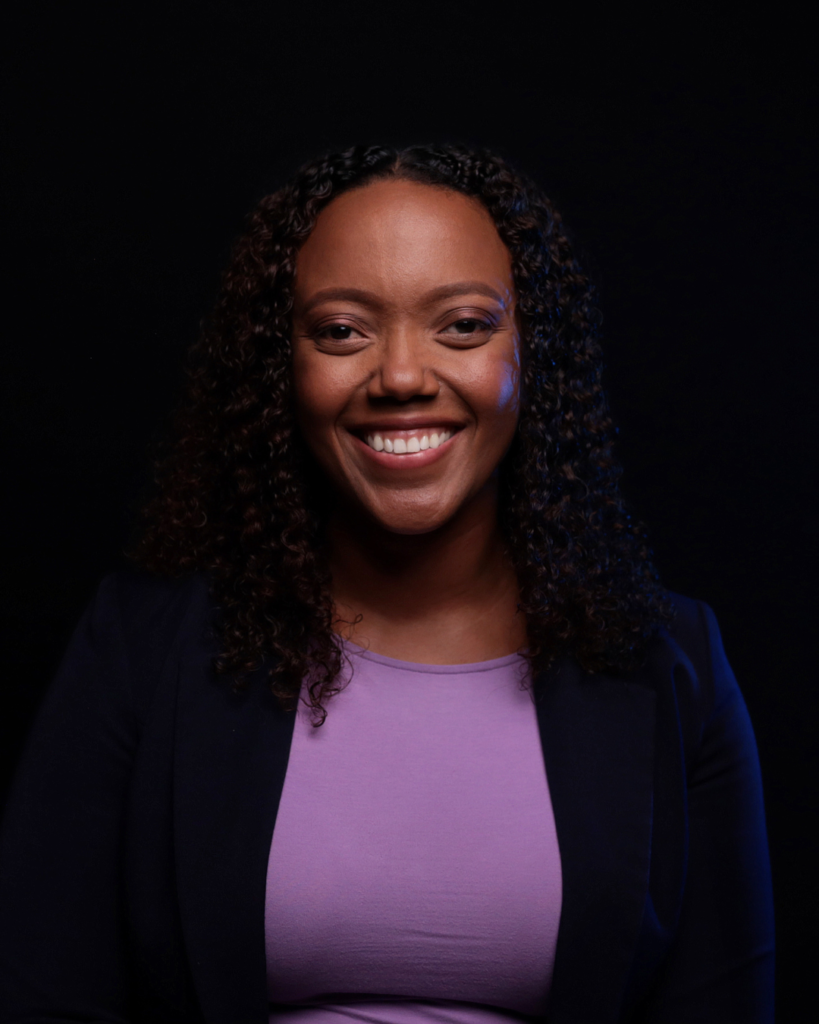
Ms. Siobhan Lawrence serves as the Director of the University Chorus, bringing with her a Bachelor of Business Administration degree in Management from the University of the Southern Caribbean, with an anticipated graduation in 2024 with a Bachelor of Arts degree in Music. Siobhan’s journey in music includes significant achievements, such as her tenure leading the HIS LUV choir from 2011 to 2014 and the University Chorale from 2023 to the present, where she continues to hone her choral leadership skills.
She has also distinguished herself as a soprano, performing with esteemed choirs both locally and internationally, including the London Adventist Chorale, Eastern Chorale, and the Liberty Chorale. Her repertoire spans sacred, gospel, jazz, and classical choral works.
Under Siobhan’s direction, the University Choir aspires to be a bastion of musical excellence. Her vision encompasses not only traditional choral performances but also exploration of diverse musical genres and collaborative projects. Siobhan aims to enhance the choir’s presence through national and virtual performances, integrating original compositions and arrangements by Seventh-day Adventist musicians from around the globe into their repertoire. She emphasizes building a strong community and fostering a sense of belonging among choir members.
Since assuming the role of University Choir Director, Siobhan has guided the choir to notable accomplishments. Under her leadership, they achieved second place in their category at the 2024 Trinidad and Tobago Music Festival. Additionally, they collaborated with local impresario John Thomas on USC mUSiC’s Christmas production of the opera “Amahl and the Night Visitors,” introducing a new musical genre to the campus community.
Here are a few testimonials from her singers about their experience working with Ms. Siobhan Lawrence:
“I have found her to be a very positive individual, who gets along very well with others. An excellent musician who is, and has been an integral part of the music program here at the USC. She was a member of the choir under the directorship of Mr. Paul Cort, and performed some of the solos in the rendition of the Messiah. For the last couple of years, she has ardently supported Mr. Keron Hislop, not only in the choir as a singer, but as a section leader; and even as a conductor of the choir on various occasions as well. She is an assertive individual, who expresses herself very well, is a team player, can be counted on to get a job done, and will go the extra mile to produce “good music.” – Dr. Cynthia Ward, Alto
“Siobhan has demonstrated her commitment to the chorale not only by her regular and punctual attendance to sessions but also by her efforts
to make us more “music score” literate. The attention she pays to details translates every rendition into a message clothed in performances of excellence. She still manages to keep everyone comfortable and relaxed, enhancing our desire to excel.” – Mr. Colville St. Hilaire, Tenor
“I’ve been a member of The UCO Chorale since 2019 under the leadership of Mr. Kerron Hislop. Ms. Siobhan Lawrence, the current Director of The UCO Chorale, has proven to be a capable, committed, dedicated, and consistent leader. She aims for perfection in all our performances. Her selection of musical pieces for the Chorale has been remarkable. I look forward to her leadership of the UCO Chorale in the new academic year.” – Mona Charles, Alto
Mr. Niall Edwards, Director, University Concert Band
Niall Edwards is a versatile professional with expertise spanning music and technology. He holds an Associate of Science (AS) in General Business, a Bachelor of Science (BS) in Computing, and a Bachelor of Arts (BA) in Music, completed in 2023. Additionally, Niall has earned a Graduate Diploma in Information Communication Technology, highlighting his ability to merge the structured world of computing with the creative realm of music.
During his music studies, Niall concurrently worked full-time as a Programmer at the University of the Southern Caribbean (USC) and served as Student Director for the university ensemble, demonstrating exceptional time management and dedication.
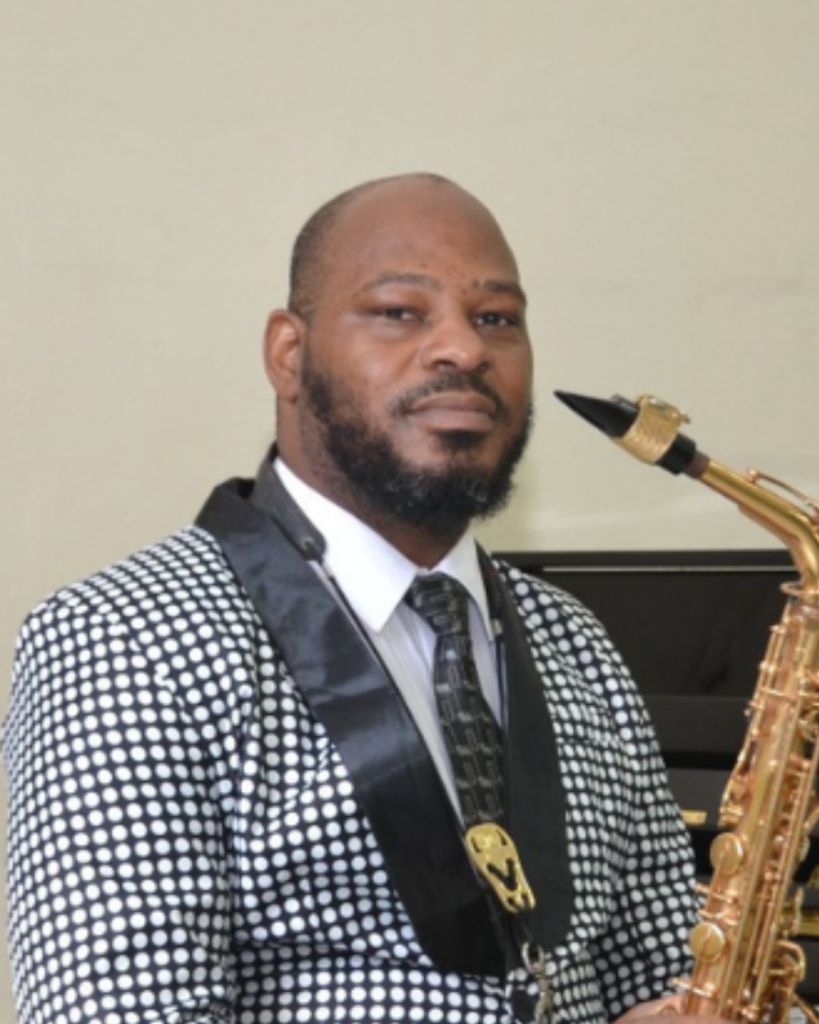
Niall’s musical journey began at age nine in marching bands, including performances at Annual Independence Day parades. He held leadership roles within these bands from a young age, eventually directing them for multiple terms, laying a strong foundation for his future achievements in music and leadership.
Since 2018, Niall has served as the esteemed conductor of the CUC Secondary School Concert Band, significantly shaping its direction and success. Under his leadership, the band has expanded in size and reputation, delivering notable performances at school events, hosting concerts, and participating in major annual concerts organized by the Department.
Niall’s vision for the University Concert Band aims to elevate it to the premier status on campus. He plans to curate a distinctive repertoire blending popular, historic, and local concert band music to enrich both musicians and audiences alike. He sees the band as USC’s cultural ambassador, embodying the university’s artistic spirit and community engagement, while nurturing students’ musical talents and cultural appreciation.
Under Niall’s direction, the University Concert Band has achieved significant milestones within just nine months, including successful concerts and performances at key university events. Looking ahead, Niall aims to expand the band’s membership, secure more performance opportunities, foster collaborations, initiate recording projects, and establish regional excellence in music education and performance.
Niall Edwards’ unique blend of music and technology expertise, coupled with his visionary leadership and unwavering dedication, promises a bright future for the University Concert Band, setting new standards of excellence in music within the region.
Mr. Anton Charles, Director, University Orchestra
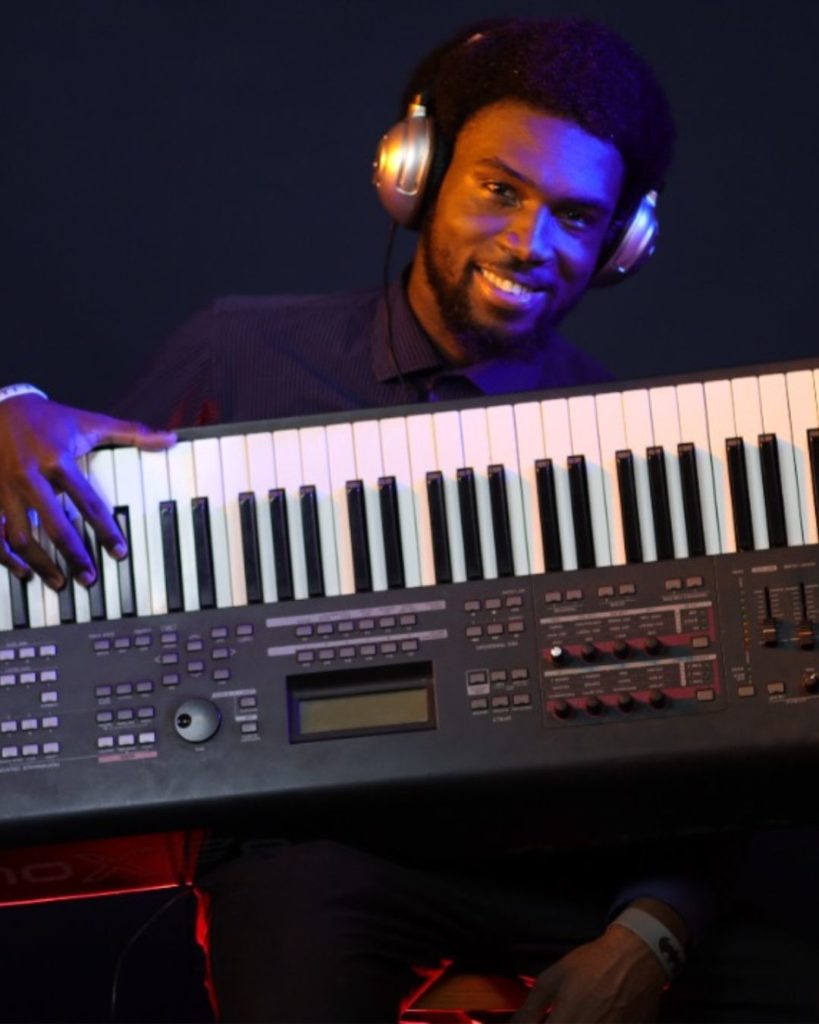
Anton Charles serves as the USC Orchestra director, overseeing rehearsals and often conducting the combined ensemble, known as UCO, when the choir joins them. A multifaceted musician, Anton excels in playing several instruments and has honed his skills as an arranger, aspiring to further develop his composition abilities. Under his guidance, the orchestra has performed exclusively orchestral works at Christmas and Spring Concerts, as well as during worship services throughout the academic year.
Mr. Gibson, a viola player in the orchestra, has observed Anton’s growth as a conductor this year. He believes that Anton possesses boundless potential with his innate talents, foreseeing remarkable achievements if Anton continues to dedicate himself to service through music.
The Music Department covets your continued support. We are in need of financial gifts to help us with the purchase of percussion instruments, supplies and repair and continued maintenance. Student scholarships are also a need that would serve us well.
With the anticipated arrival of new faculty to join the Music Department the role that these directors will play in directing next year is still in question. What is not in doubt, is that no matter their role we know that they will continue to play a vital part in the growth and development of the department and the reputation.
- Published in News, President's Newsletter
Celebrating Excellence: Mr. Fitzroy Harewood Honored with 2024 Spirit of USC Award
By Simone Augustus, Corporate Communications Officer
The University of the Southern Caribbean (USC) is counting the days to its 91st Commencement Ceremony on Sunday, June 30, 2024, at 9:00 am. This landmark event will take place at the USC Auditorium on the Main Campus in Maracas Valley, St. Joseph, and will also be streamed live on YouTube (youtube.com/@UoSC), allowing a global audience to join in celebrating the achievements of the Class of 2024.
Honoring Excellence: The 2024 Spirit of USC Awardees
A highlight of the commencement ceremony will be the presentation of the 2024 Spirit of USC Awards, recognizing individuals who have made significant contributions to their fields and exemplify the values of USC. One such esteemed awardee is Mr. Fitzroy Harewood, the current President of Point Lisas Nitrogen Limited.
Meet Mr. Fitzroy Harewood
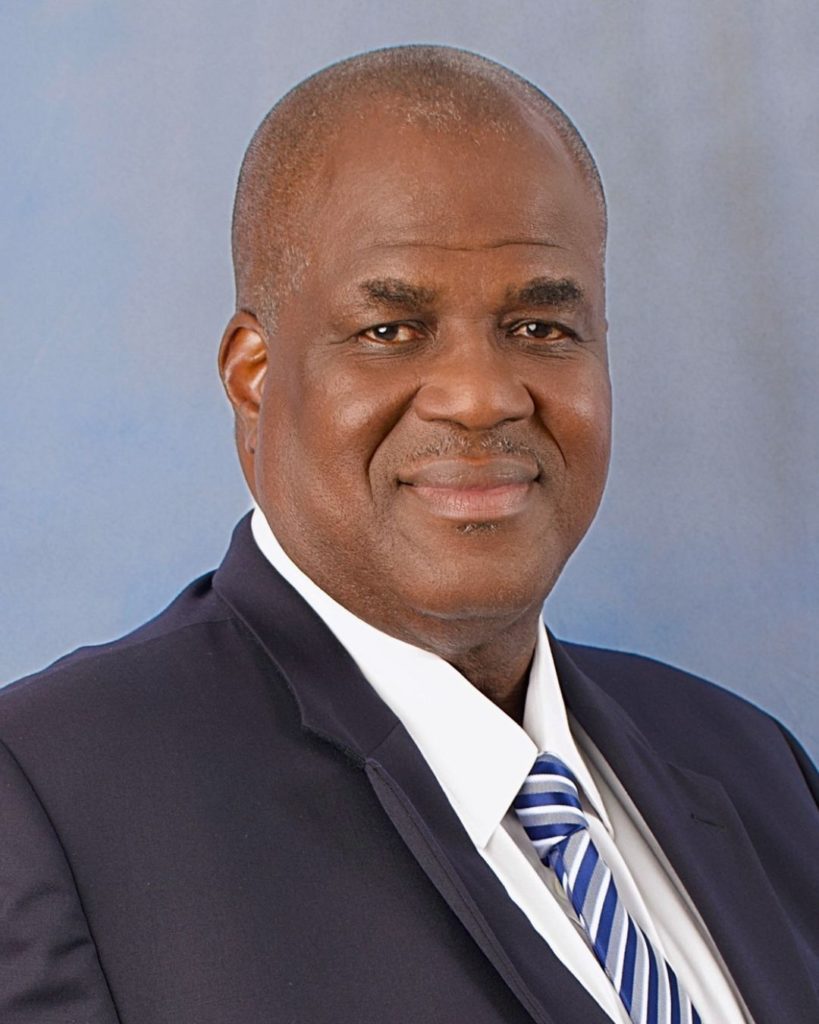
Mr. Fitzroy Harewood is a distinguished leader in the energy sector with nearly four decades of experience spanning the oil, gas, power, and petrochemical industries. As President of Point Lisas Nitrogen Limited, an Ammonia manufacturing facility in Point Lisas Industrial Estate (North), Trinidad, Mr. Harewood oversees operations in a joint venture company owned by two US-based entities.
After graduating from the University of the West Indies St. Augustine in 1985 with a B.Sc. Degree in Electrical Engineering, Mr. Harewood began his career at the Telephone Company of Trinidad and Tobago (later TSTT) as an Engineer-in-training and project engineer.
A year later, he joined the Trinidad and Tobago Oil Company Limited (Trintoc), a predecessor of Petrotrin, where he worked as a Project Engineer on various projects.
In 1995, Mr. Harewood transitioned to Hydro Agri Trinidad Limited, which later became Yara Trinidad Limited, based in Savonetta Point Lisas. Over the years, he ascended through various roles, including Assistant Manager, Engineering, and Production Manager. His career then took him to The Power Generation Company of Trinidad and Tobago Limited (PowerGen), where he served as General Manager from 2011 to 2015.
In November 2015, Mr. Harewood was appointed President of Petrotrin, a position he held until February 2018. He then took on the role of President at Point Lisas Nitrogen Limited in June 2018.
Leadership and Service
Mr. Harewood is also deeply involved in the local energy sector as Chairman of the Point Lisas Energy Association of CEOs (PLEA) and Chairman of the Safe To Work (STOW) Implementation Board of the Energy Chamber of Trinidad and Tobago. His professional affiliations include memberships in The American Chamber of Commerce of Trinidad and Tobago, the Energy Chamber of Trinidad and Tobago, the Society for Human Resource Management, the Project Management Institute, and the Institute of Electrical and Electronic Engineers.
Beyond his professional accomplishments, Mr. Harewood has been a dedicated leader within the local Credit Union sector and community sports organizations in southwest Trinidad. He is also a long-serving elder of the Seventh-day Adventist Church at Cochrane Village, Guapo, Point Fortin, where he has held leadership roles for over 43 years.
Join Us in Celebration
USC invites everyone to join in this significant celebration of the Class of 2024, a cohort guided by the aim, “Guided by Faith, Destined by His Calling,” and inspired by the theme, “Determined Minds, Boundless Futures.” This year’s ceremony is not just a testament to the graduates’ hard work and dedication, but also an opportunity to honor alumni from the classes of 1974 and 1999 as the gold and silver classes, respectively.
As USC approaches its centennial in 2027, the university continues to uphold its philosophy of holistic development—cultivating intellectual curiosity, moral integrity, cultural diversity, and spiritual nurture. Over the past century, more than 32,000 alumni have carried forward USC’s legacy of “Beyond Excellence,” transforming lives and communities globally.
Don’t miss this opportunity to witness a milestone event. Tune in live on YouTube to be part of a celebration that honors the past, celebrates the present, and inspires the future.
- Published in News, President's Newsletter
Celebrating Excellence: Dr. Naomi Modeste Honored with 2024 Spirit of USC Award
By Simone Augustus, Corporate Communications Officer
The University of the Southern Caribbean (USC) is proud to host its 91st Commencement Ceremony on Sunday, June 30, 2024, at 9:00 am. This momentous event will be held at the USC Auditorium on the Main Campus in Maracas Valley, St. Joseph, and will also be streamed live on YouTube (youtube.com/@UoSC).
As part of the festivities, the 2024 Spirit of USC Award will be presented to outstanding individuals who embody the spirit and values of USC. Among this year’s distinguished awardees is Dr. Naomi Modeste, a retired Professor Emeritus from Loma Linda University, whose remarkable career and contributions to public health and education have left an indelible mark on communities worldwide.
A Lifelong Commitment to Health and Education
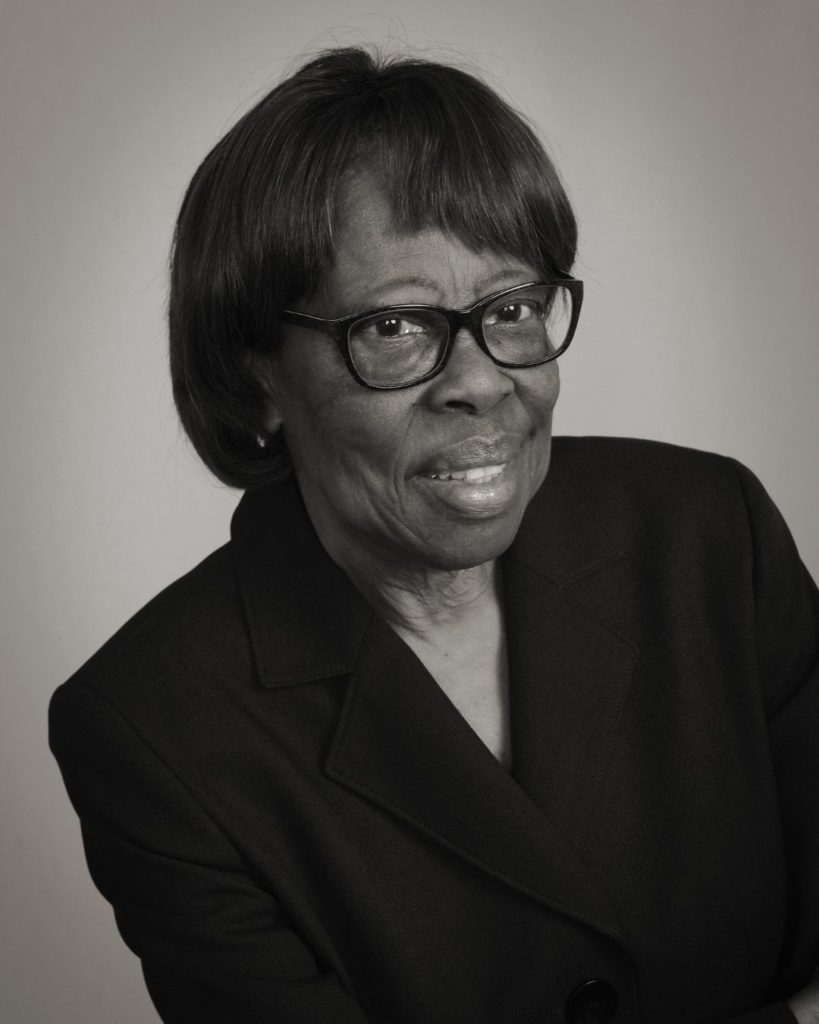
Dr. Naomi Modeste’s journey began on the island of Tobago, Republic of Trinidad and Tobago. Her early education took root at home and continued at the John Roberts Memorial School of SDA in Glamorgan. After completing high school and two years of college at Caribbean Union College (CUC), she earned a Bachelor of Science degree from Union College in Lincoln, Nebraska. She then pursued a Master of Public Health (MPH) at Loma Linda University, a credential that would pave the way for her groundbreaking career.
Upon returning to Trinidad and Tobago, Dr. Modeste broke barriers as the first female Health and Temperance Director for the South Caribbean Conference, later advancing to Health and ADRA Director for the Caribbean Union Conference. Her leadership saw her conducting health seminars, organizing community health fairs, and collaborating with government health leaders, significantly impacting public health across the Caribbean.
A Distinguished Academic Career
Dr. Modeste’s pursuit of excellence led her back to Loma Linda University, where she earned a doctorate in Public Health while simultaneously working. Her impressive academic achievements and leadership skills led to her appointment as Director of the Department of Health for the Inter-American Division in Miami, Florida. In this role, she extended her influence across the Caribbean, Central America, and South America.
In 1990, Dr. Modeste joined the faculty of Loma Linda University’s School of Public Health. Over her 25-year tenure, she chaired the Department of Health Promotion and Education, directed the Masters and Doctoral Programs in Health Education, and mentored numerous graduate students. Notably, she restructured these programs to include online degrees, which remain popular today.
A Legacy of Publications and Awards
Dr. Modeste is a prolific author, with over 90 publications in refereed journals, a vegetarian cookbook tailored for the Caribbean, and her recent memoir, “Memoirs of an Island Belle.” Her dedication to education and public health has earned her numerous accolades, including the Loma Linda University Distinguished Service Award and recognition in “Who’s Who in Trinidad and Tobago” and “Who’s Who among America’s Teachers.”
Continued Service and Passion for Mission
Despite retiring, Dr. Modeste’s passion for mission work and education endures. She volunteers with various organizations, including HANDS International and APC Community Services, and has participated in mission trips to Belize, Grenada, Trinidad and Tobago, and beyond. Residing in Georgia, she continues to mentor youth, chairs the Conyers Adventist Academy School Board, and teaches an online graduate health behavior class.
Join Us in Celebration
USC invites everyone to join the 91st Commencement Ceremony to celebrate the Class of 2024 and honor Dr. Naomi Modeste’s extraordinary contributions. Her story is a testament to the power of education, service, and unwavering dedication. Tune in live on YouTube and be inspired by the legacy of an exceptional servant leader who truly embodies USC’s motto, “Beyond Excellence.”
- Published in News, President's Newsletter
USC’s 91st Commencement Ceremony to Feature Prime Minister Dr. Keith Rowley as Keynote Speaker
By Simone Augustus, Corporate Communications Officer
The University of the Southern Caribbean (USC) is thrilled to announce its 91st Commencement Ceremony, set to take place on Sunday, June 30, 2024, at 9:00 am. This grand event will celebrate the achievements of over 400 graduates from USC’s seven campuses, united under the inspiring theme “Determined Minds, Boundless Futures.” The ceremony will be held at the USC Auditorium on the Main Campus in Maracas Valley, St. Joseph, and will also be streamed live on YouTube (youtube.com/@UoSC).
Honoring the Class of 2024
The Class of 2024, guided by their chosen aim, “Guided by Faith, Destined by His Calling,” will be joined by esteemed alumni from the classes of 1974 and 1999, who will be celebrated as USC’s gold and silver classes, respectively. This year’s graduates and returning alumni symbolize USC’s enduring legacy of excellence in education, which will mark its centennial in 2027.
For nearly a century, USC has remained committed to its educational philosophy of holistic development—encompassing the head, heart, and hand. This approach rests on the pillars of intellectual curiosity, moral integrity, cultural diversity, and spiritual nurture. Over these years, more than 32,000 alumni have embodied USC’s motto, “Beyond Excellence,” and its mission to transform ordinary people into extraordinary servants of God and humanity through a comprehensive tertiary educational experience.
Keynote Speaker: Dr. The Honorable Keith Christopher Rowley
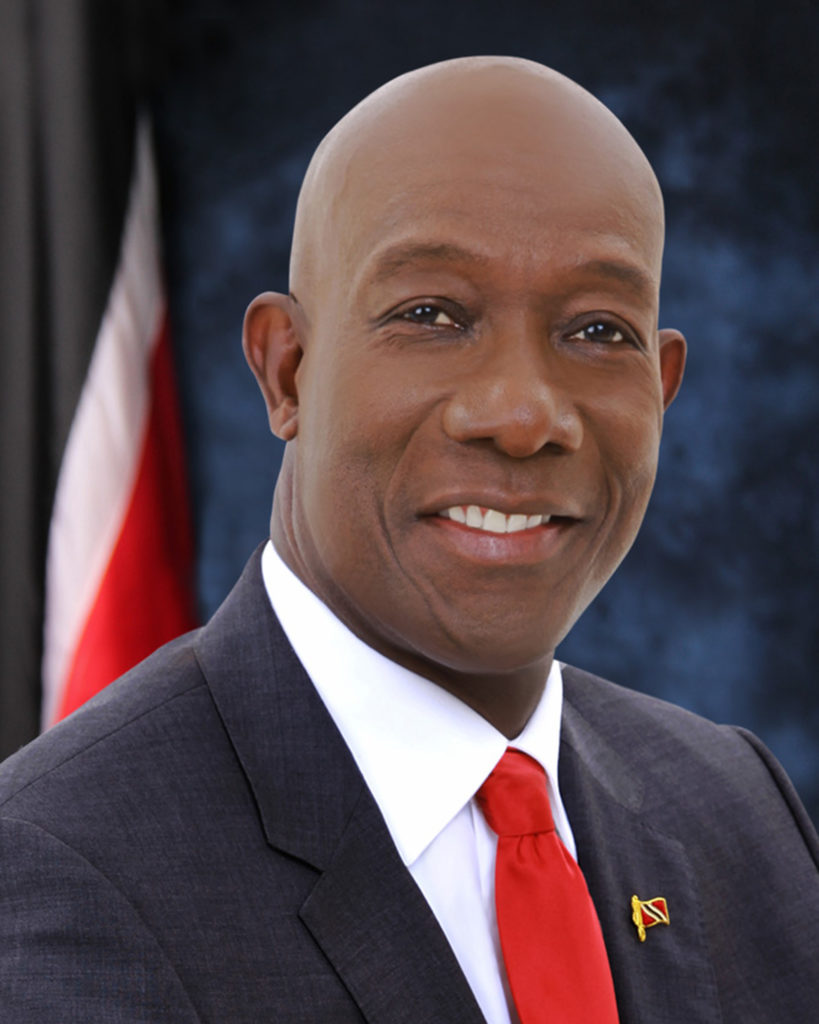
USC is honored to welcome Dr. The Honorable Keith Christopher Rowley, Prime Minister of the Republic of Trinidad and Tobago, as the keynote speaker for this year’s commencement ceremony. Dr. Rowley’s distinguished career and personal journey reflect a profound commitment to public service and scientific excellence.
Born on October 24, 1949, in Mason Hall, Tobago, Dr. Rowley was raised by his grandparents, who were prominent farmers in Tobago. He attended Bishop’s High School in Tobago, where he earned the prestigious Sylvan Bowles scholarship.
Dr. Rowley continued his academic journey at the University of the West Indies, St. Augustine, where he earned an MSc and PhD in Volcanic Geochemistry.
A Legacy of Service and Leadership
Dr. Rowley’s career as a volcanologist saw him provide critical scientific guidance and support during volcanic emergencies across the Caribbean. His expertise led him to roles as a Research Fellow and Head of Department at the Seismic Research Unit at the University of the West Indies, St. Augustine.
In 1987, Dr. Rowley transitioned to public service, being appointed to the Parliament of Trinidad and Tobago as a Senator. Over his nine consecutive parliamentary terms, he held various ministerial positions, including Minister of Agriculture, Lands and Marine Resources; Minister of Planning and Development; Minister of Housing; and Minister of Trade and Industry. He also served as a designated Governor for the Inter-American Development Bank (IDB) and the Caribbean Development Bank (CDB).
Dr. Rowley’s political career includes his tenure as Leader of the Opposition from 2010 to 2015 and his leadership of the People’s National Movement (PNM) since 2010. Elected as Prime Minister in September 2015 and re-elected in August 2020, Dr. Rowley continues to serve Trinidad and Tobago with distinction.
Join Us Live
Dr. Rowley’s inspiring story and leadership will undoubtedly resonate with USC’s graduates, alumni, and the broader community. We invite everyone to join us in celebrating the accomplishments of the Class of 2024 and to hear Dr. Rowley’s keynote address, which promises to be both motivational and thought-provoking.
Don’t miss this landmark event. Tune in live on YouTube and be part of a momentous celebration as USC proudly honors its past, celebrates its present, and looks forward to a future of “Determined Minds, Boundless Futures.”
- Published in News, President's Newsletter
USC’s 91st Graduation Weekend Continues with an Inspiring Baccalaureate Service with Dr. Slimen Saliba
By Simone Augustus, Corporate Communications Officer
The University of the Southern Caribbean (USC) is delighted to announce that Dr. Slimen Saliba will be the distinguished guest speaker for the Baccalaureate Service during our 91st Graduation weekend. The service will be held on Saturday, June 29, 2024, at 10:30am at the USC Auditorium on our Main Campus in Maracas Valley, St. Joseph, and will be streamed live on YouTube (youtube.com/@UoSC).
Meet Dr. Slimen Saliba

Dr. Slimen Saliba, is a distinguished academic and leader with a profound heritage and a global impact. Born in Barataria, Trinidad, Dr. Saliba’s journey began with humble roots. His mother, Hyacinthe Saliba, an elementary school teacher, and his father, Nabih Saliba, a Lebanese immigrant, instilled in him a passion for education and service from a young age.
Dr. Saliba’s educational path led him from Woodbrook CM Elementary School to Queen’s Royal College and then to Caribbean Union College (now USC), where he began his Theology studies in 1963.
His quest for knowledge and excellence took him to Andrews University, where he earned a Bachelor’s degree in Religion and History in 1967 and a Master of Arts in Ethics and Theology in 1969.
Upon returning to Trinidad in 1970, Dr. Saliba dedicated himself to the South Caribbean Conference of Seventh-day Adventists, serving as a Youth Director and later as Executive Secretary. His commitment to his faith and community was further solidified when he was ordained as a minister.
Dr. Saliba’s academic pursuits did not stop there. He completed an MBA at Andrews University in 1978 and a PhD in Marketing Management at Northwestern University in 1983. His exceptional leadership skills were soon recognized, and in 1982, he was appointed Dean of the Andrews University School of Business. Under his tenure, the School of Business experienced significant growth, including the construction of Chan Shun Hall and the establishment of MBA programs in Hong Kong, Taiwan, and Trinidad.
Dr. Saliba’s vision extended beyond academia. In 1993, he played a pivotal role in founding the Florida Hospital College of Health Sciences, now AdventHealth University. As Vice President of Marketing at AdventHealth Orlando, he led numerous initiatives that propelled the institution forward.
In 2008, Dr. Saliba married Carolyn Fagal Cales after the passing of his first wife, Patricia Thomson, due to multiple myeloma. Together, they have a blended family of five children and three grandchildren, with loved ones spread across California, Colorado, Orlando, and Toronto.
Dr. Saliba retired in 2017 as Senior Vice President of Marketing at AdventHealth but was soon called back to establish the AdventHealth Leadership Institute. His mission: to develop physician and executive leaders dedicated to extending Christ’s healing ministry.
Despite his retirement as Director of the AdventHealth Leadership Institute, Dr. Saliba continues to serve passionately, embodying his life’s mission and inspiring others.
Join Us Live
Dr. Slimen Saliba’s remarkable journey from Barataria to global leadership is a testament to his dedication and vision. We invite you to join us for the Baccalaureate Service at USC’s 91st Graduation on June 29, 2024, at 10:30am. Dr. Saliba’s profound insights and inspiring life story will set a powerful tone for this celebratory weekend.
Don’t miss this opportunity to hear from a true visionary. Tune in live on YouTube and be part of a momentous occasion as we celebrate “Determined Minds, Boundless Futures.”
- Published in News, President's Newsletter
USC to Host Virtual Consecration Service with Pastor Anthony S. Hall at 91st Graduation
By Simone Augustus, Corporate Communications Officer
Join us on June 28, 2024, at 7:00pm for the virtual Consecration Service as we kick off the University of the Southern Caribbean’s (USC) 91st Graduation weekend. Streaming live on YouTube (youtube.com/@UoSC), this event promises to inspire and uplift with our esteemed guest speaker, Pastor Anthony S. Hall.
Meet Pastor Anthony S. Hall
Pastor Anthony S. Hall is a distinguished leader and dedicated servant of the Seventh-day Adventist Church with a career spanning over three decades. A graduate of Andrews University, Caribbean Union College, the University of the West Indies, Cave Hill, and the Sir Hugh Wooding Law School, Pastor Hall brings a wealth of knowledge and experience to his ministry.
Since 1991, Pastor Hall has faithfully served the church, making significant contributions as the Youth Director of the East Caribbean Conference, Vice President for Student Development and Services at USC, and Youth, Chaplaincy and Public Campus Ministries Director of the Caribbean Union Conference.
His pastoral work has taken him to congregations in St. Lucia and Barbados, where he has left an indelible mark with his compassionate leadership and dedication.
In addition to his theological and pastoral accomplishments, Pastor Hall earned a Bachelor of Laws (LL.B) degree from the University of the West Indies in 2002 and graduated from the Sir Hugh Wooding Law School in 2004. He was admitted as an Attorney-at-Law by the Supreme Court of Barbados and is a member of the Barbados Bar Association of Attorneys-at-Law.
Currently, Pastor Hall serves as the President, Public Affairs and Religious Liberty (PARL) and Communication Director for the East Caribbean Conference of Seventh-day Adventists. He also holds the position of Vice President for Legal Affairs at the Caribbean Religious Liberty Association (CARLA). Known for his compelling sermons and presentations, Pastor Hall is highly sought after for his insights and dedication.
Pastor Hall lives by the philosophy, “The purpose of life is not to be happy, but to matter, to be productive, to be useful and to have it make some difference that you have lived at all.” His unwavering commitment to God, his family, and the Seventh-day Adventist Church is evident in all he does.
Don’t miss the opportunity to hear from Pastor Anthony S. Hall at the USC’s virtual Consecration Service. His words of wisdom and inspiration will set the tone for a remarkable graduation weekend. Tune in live on YouTube and be part of this transformative event!
- Published in News, President's Newsletter
Shaping the Future: Kennisha Sylvester, Valedictorian of USC’s Class of 2024
By Simone Augustus, Corporate Communications Officer
Kennisha Sylvester stands proudly as the Valedictorian of the University of the Southern Caribbean’s Class of 2024. With a Bachelor of Science in Nutrition and Dietetics, earned summa cum laude and a stellar GPA of 3.93, Kennisha’s story is one of inspiration, determination, and the transformative power of education.
A Mother’s Sacrifice: The Catalyst for Change

Kennisha’s journey to academic excellence is deeply rooted in her family’s story. As a first-generation student from a low-income household, higher education seemed like an unattainable dream. Yet, her mother’s relentless sacrifices and unwavering support provided the inspiration Kennisha needed. Her mother’s battle with health issues due to poor nutrition became a turning point, igniting a passion in Kennisha to help others make healthier lifestyle choices. This profound personal experience led her to pursue a degree in Nutrition and Dietetics, with a mission to prevent others from facing similar struggles.
Academic Brilliance, Pioneering Research and Leadership
Kennisha’s time at USC was marked by numerous accolades and active participation in campus life. She was a dedicated member of the Health Awareness Club, where she contributed to promoting wellness and healthy living. Her academic journey was nothing short of exemplary. In 2020, she was honored with the President’s List award for the 2019-2020 academic year. She also consistently made it to the Dean’s List and Provost’s List from 2019 to 2021, a testament to her hard work and resilience. Moreover, Kennisha received the ASB Financial Assistance award twice, highlighting her determination and resourcefulness.
Kennisha’s academic achievements extend beyond the classroom. She presented a significant research project on Pancreatitis and Nutrition-related care at St. Georges’ General Hospital in Grenada. This project, part of her Medical Nutrition Therapy Affiliation course, provided valuable insights to medical professionals and patients, showcasing her commitment to advancing nutritional knowledge and care. Despite her busy schedule, Kennisha also organized webinars and led group projects, demonstrating her leadership and dedication to academic and community growth.
USC: A Platform for Personal and Professional Growth
USC played a crucial role in shaping Kennisha’s personal and professional skills. She mastered time management, balancing full-time work as a Clerical Assistant at UWI, running a small business, and excelling academically. Her public speaking skills flourished through constant presentations, transforming her into a confident orator. Additionally, her team-building abilities were honed as she frequently took on leadership roles in group settings. Reflecting on her time at USC, Kennisha describes it as a “home away from home,” a place that has indelibly shaped her identity and future aspirations.
Looking ahead, Kennisha plans to pursue a Master’s Degree in Food Science. Her goal is to delve deeper into the science of food and its impact on health. She envisions a career in the food industry, focusing on enhancing food quality and nutritional content, particularly in Trinidad and Tobago. Kennisha aims to be an advocate for better food standards, integrating her nutrition expertise to improve public health on a broader scale.
Words of Encouragement: Embrace Your Space
Kennisha leaves her fellow graduates with empowering words: “Take up space.” She encourages them to embrace opportunities and confidently occupy their place in the world. “There’s always demand for individuals with distinctive skills and personalities,” she asserts, urging her peers to pursue their paths boldly, knowing that each of them has a unique contribution to make.
Kennisha’s ability to balance academics and entrepreneurial endeavors sets her apart. Her tenacity and perseverance have been the cornerstones of her success, demonstrating her commitment to excellence. “My ability to maintain a stately balance between academics and entrepreneurial endeavors is indeed a remarkable trait that makes me unique,” she says. “My tenacity and perseverance, which continue to define my adulthood, have empowered me to strive for success.”
Kennisha Sylvester’s story is a testament to the power of determination, the importance of family, and the profound impact of education. As she steps into the future, her journey will undoubtedly inspire many, and her contributions promise to bring positive change to the world of nutrition and food science.
- Published in News, President's Newsletter, Students

